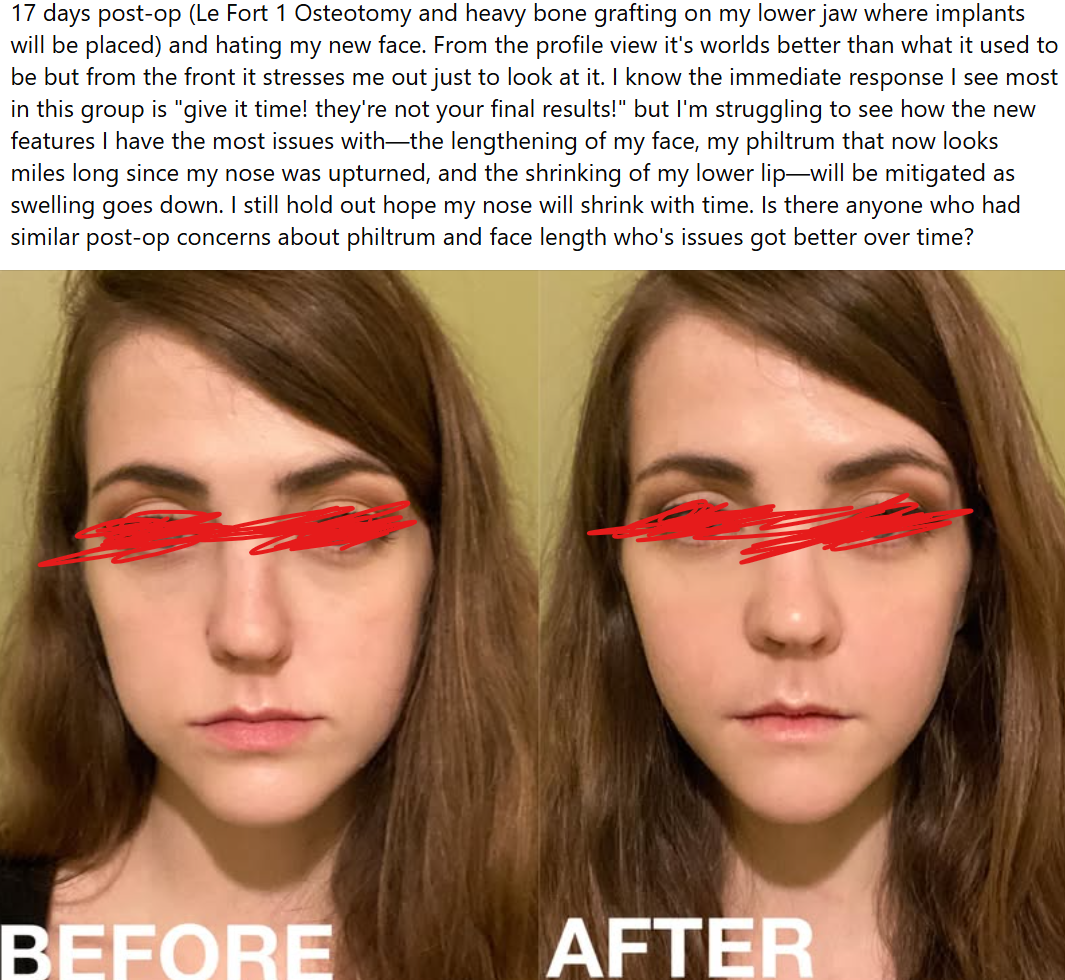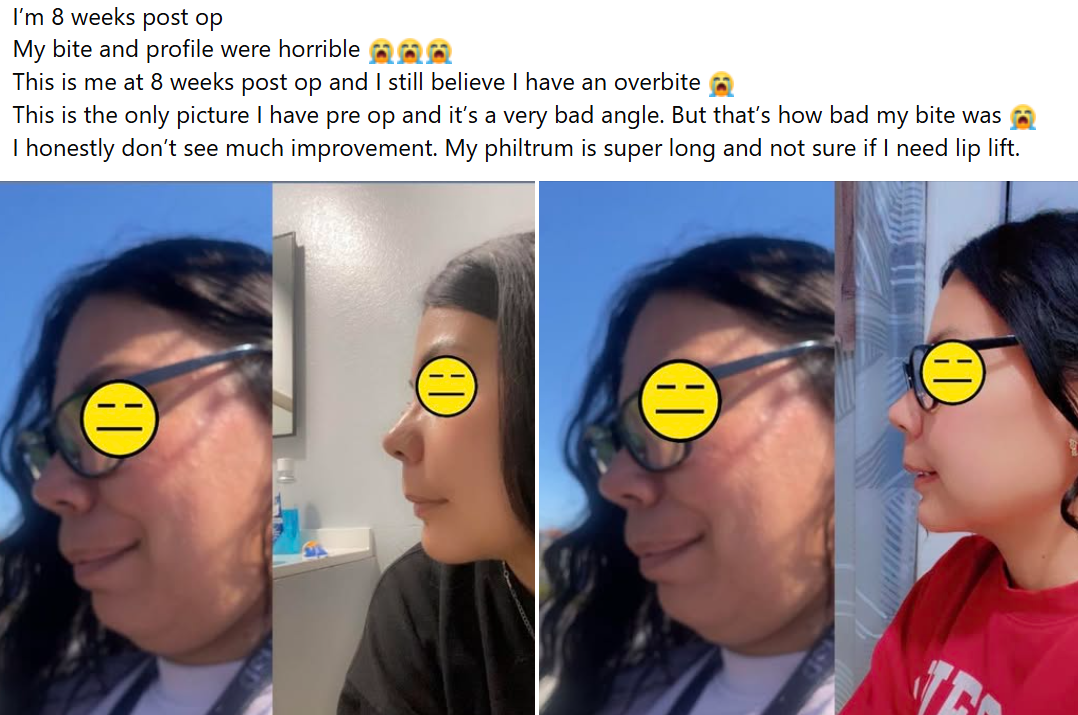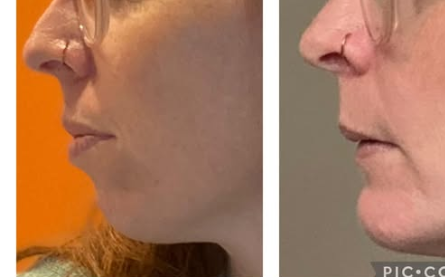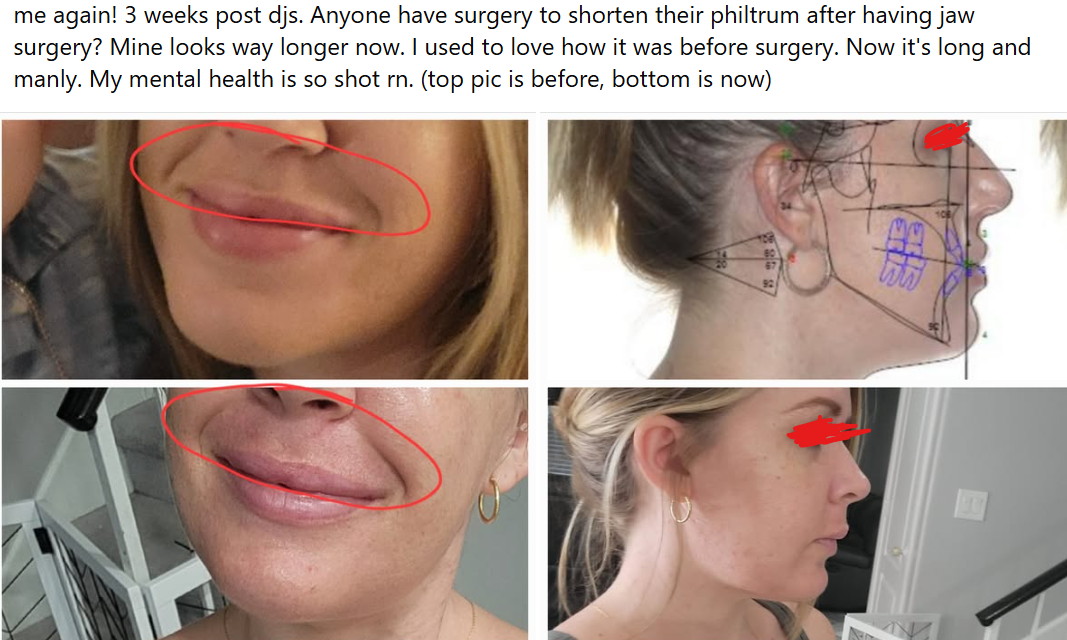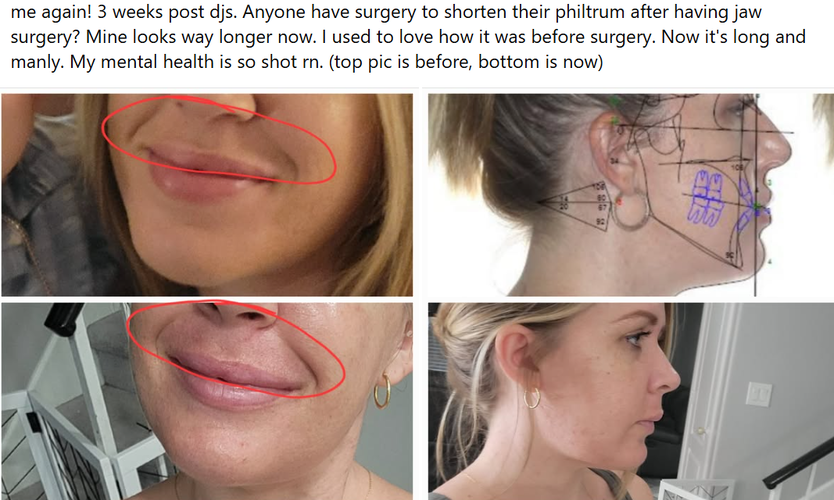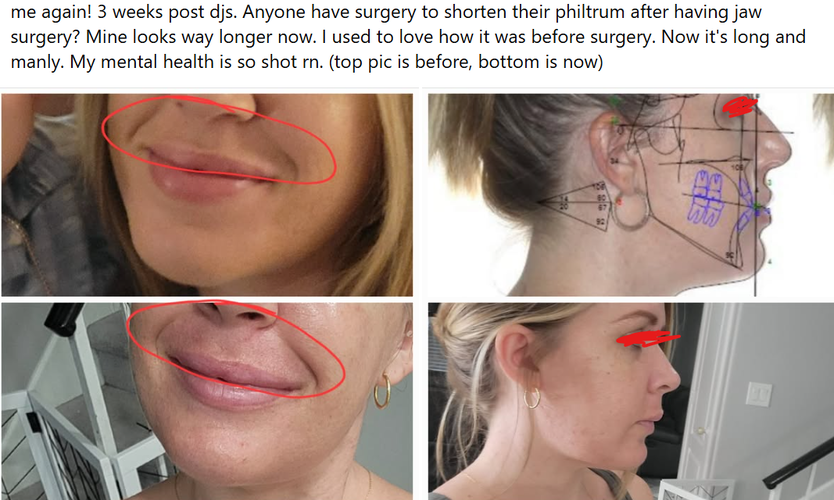Y
yolo23
Iron
- Joined
- Sep 15, 2023
- Posts
- 48
- Reputation
- 37
I agree with the stickied Realitypill thread about the risks of surgical operations.
For those who didn't see it, here is the thread: https://looksmax.org/threads/the-realitypill-easier-said-than-done.1414566/
I just wanted to add my take on it on what I learned about Jaw Surgery:
Jaw surgery is one of the most complex facial surgeries you can get, and there are a lot of things that can go wrong. After spending a lot of time reading through forums, patient stories, and social media posts, I’ve seen a wide range of complications that people experience — some temporary, some permanent.
Here’s what stood out to me:
For those who didn't see it, here is the thread: https://looksmax.org/threads/the-realitypill-easier-said-than-done.1414566/
I just wanted to add my take on it on what I learned about Jaw Surgery:
Jaw surgery is one of the most complex facial surgeries you can get, and there are a lot of things that can go wrong. After spending a lot of time reading through forums, patient stories, and social media posts, I’ve seen a wide range of complications that people experience — some temporary, some permanent.
Here’s what stood out to me:
1. Nerve Damage and Loss of Sensation
- Permanent numbness in the chin, lower lip, or upper lip.
- Sometimes numbness affects your mouth — gums, upper palate, or inside of the cheeks.
- This isn’t “just numbness.” It can impact daily life:
- Not feeling food stuck on your lips.
- Burning your lips when drinking hot drinks.
- Kissing not feeling the same.
- Not realizing you still have food or pills in your mouth.
- Chronic sharp pain in lips/chin.
- Sensitivity to cold weather.
- Even a genioplasty (chin surgery) alone can cause permanent lower lip/chin numbness.
- The older you are, the less likely nerve sensation will recover — and the more severe the numbness can be.
2. Changes to Nose and Sinuses (Upper Jaw Surgery)
- Upper jaw (Le Fort) surgery can widen your nose, make it crooked, or change its shape — sometimes requiring rhinoplasty afterward.
- Cuts in the maxilla can lead to chronic sinus infections.
3. Aesthetic Trade-Offs
- Maxilla impaction can make the philtrum appear longer.
- Sometimes it causes a gummy smile (even though it’s supposed to reduce one).
- It can also reduce tooth show — so you might only see upper teeth when fully smiling, with no lower teeth visible.
- Before/after photos can be misleading — often showing only flattering angles. From the front, the surgery can create:
- Longer face appearance.
- Longer philtrum.
- “Dog/monkey maxxing” (uncanny proportions).
- Teeth photos are also selectively shown — sometimes they still don’t fully close your bite, or lips remain apart.
4. Joint-Related Risks (TMJ/TMD)
- If you already have issues like Idiopathic Condylar Resorption (ICR) or a steep mandibular angle, you’re at higher risk for relapse or TMJ problems.
- These problems can cause chronic pain, limited mouth opening, difficulty chewing, and speech issues.
- Severe cases may require total joint replacement (TJR) — a 6–7 hour surgery with serious risks and side effects.
- Even braces alone can worsen ICR — so get screened before starting any orthodontic or jaw work.
- More jaw movement or aggressive counter-clockwise (CCW) rotation = higher risk of relapse, nerve damage, and other complications.
5. Recovery, Revisions, and Realistic Expectations
- Surgery can require 1–2 years in braces, with 1 year often being post-op.
- Infections and revision surgeries are possible.
- You may experience temporary hair loss for months, and in rare cases it can last longer.
- Looksmaxing with jaw surgery is often overstated — most before/after transformations are modest (incel to incel/sub 8 to sub 8) unless the person already had strong features. They also don't tell the story of what were the trade offs with these cases, what kind of nerve damage/health issues they developed as a result of the surgery, or some that relapsed later or had to have additional revisions.
- By the time you complete the process, natural aging might reduce some of the aesthetic gains.
- Functional or breathing issues are usually the best reasons to get surgery — purely aesthetic motivations may not be worth the risks.
- Timing matters — younger patients (around age 20) tend to recover better with fewer complications.
Last edited:



